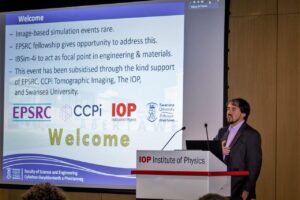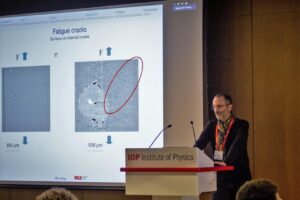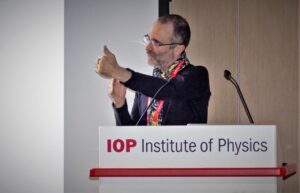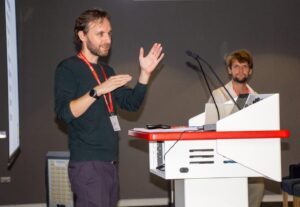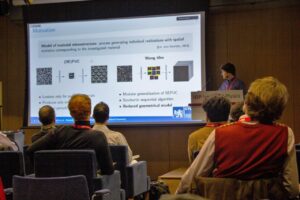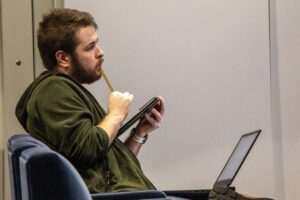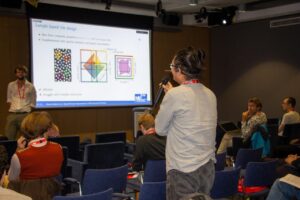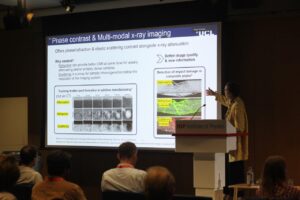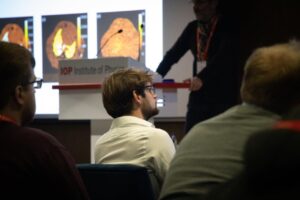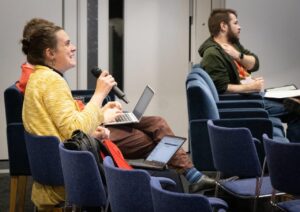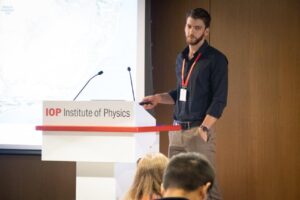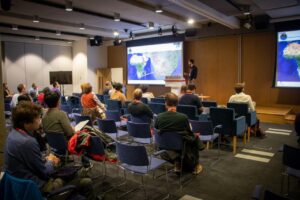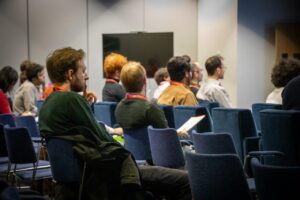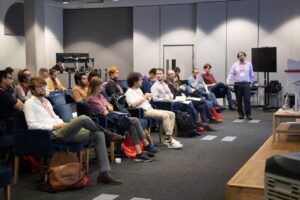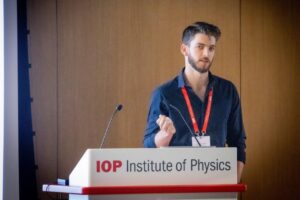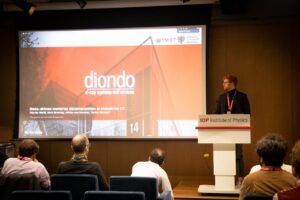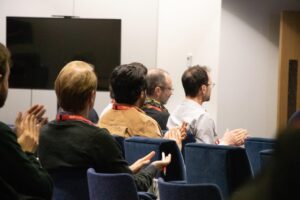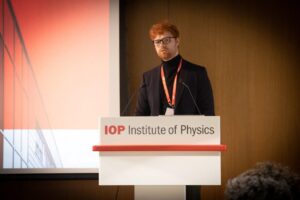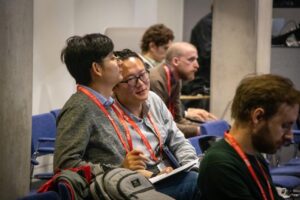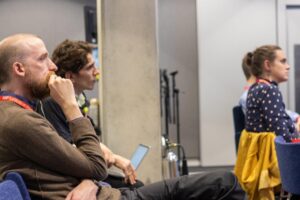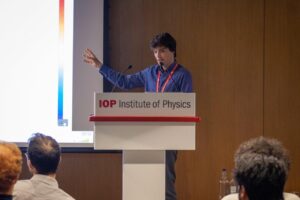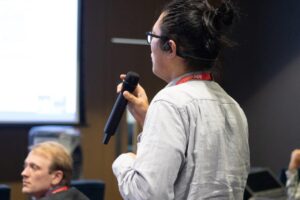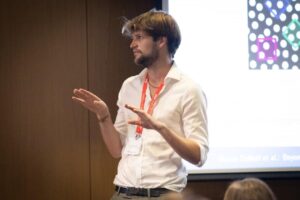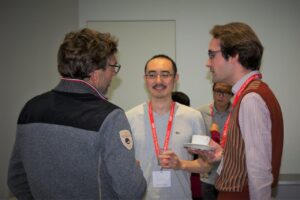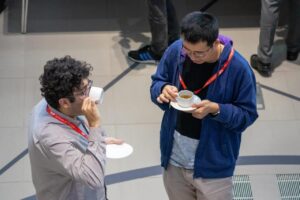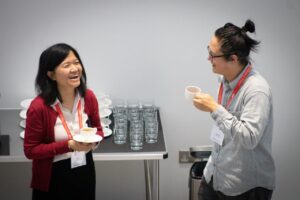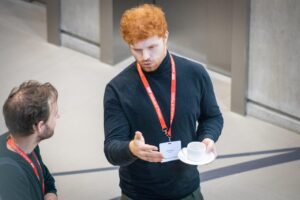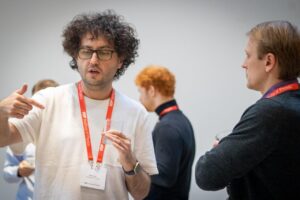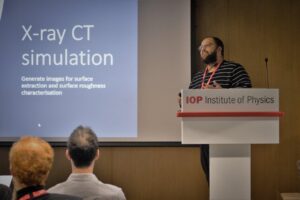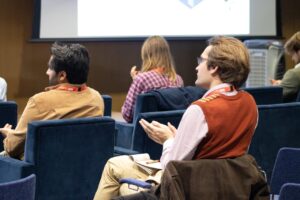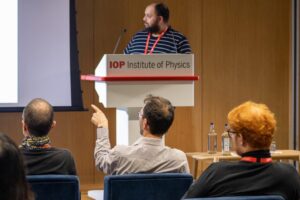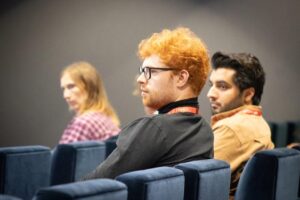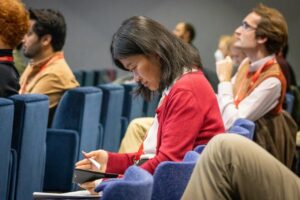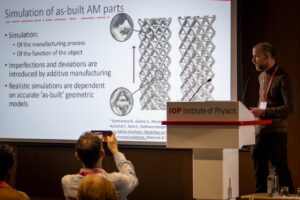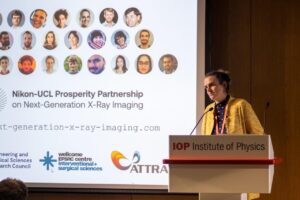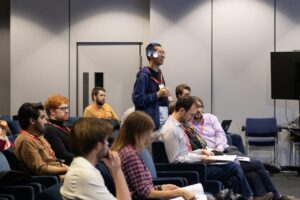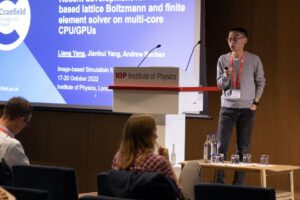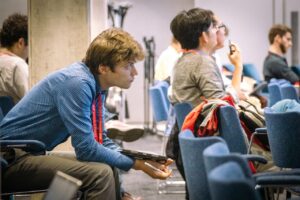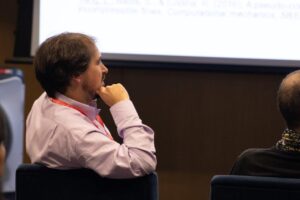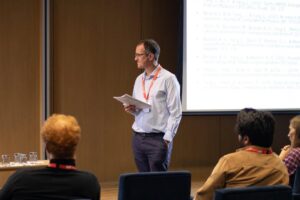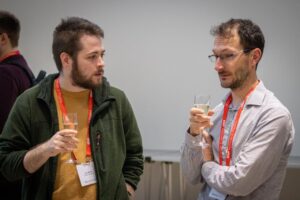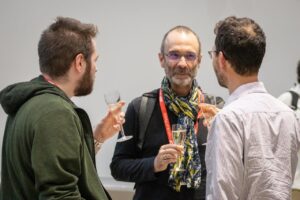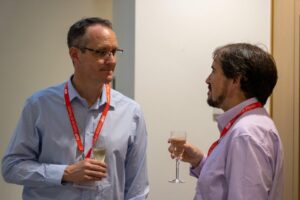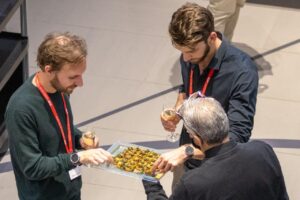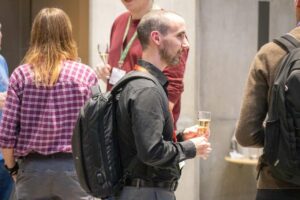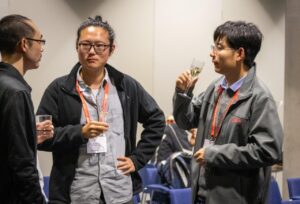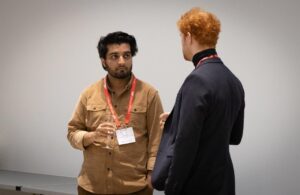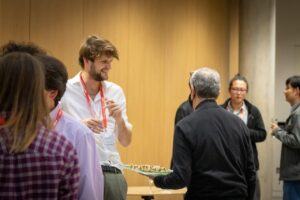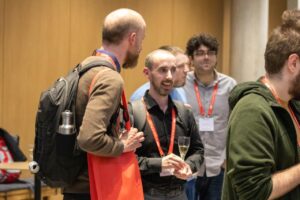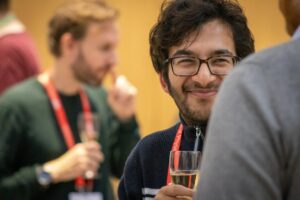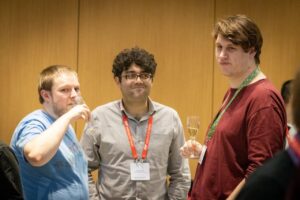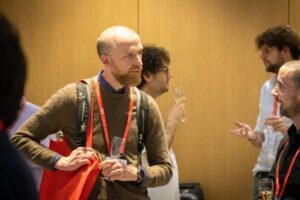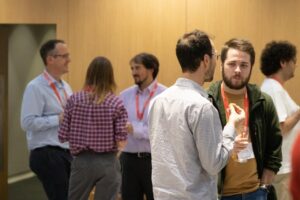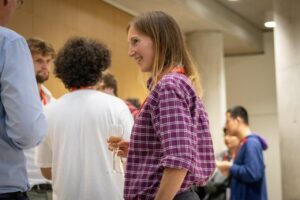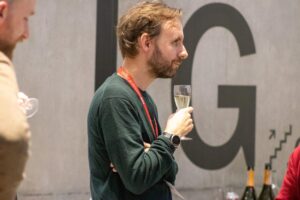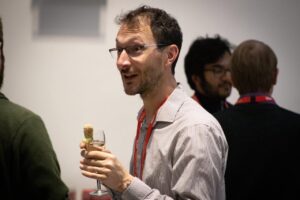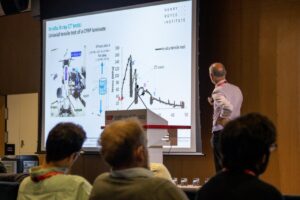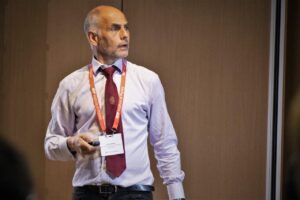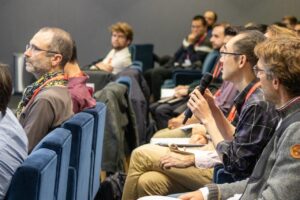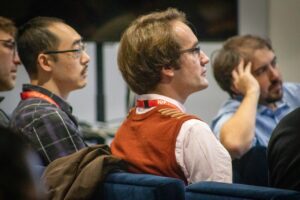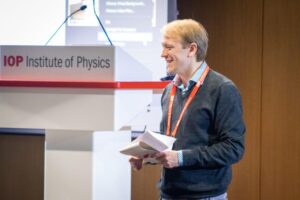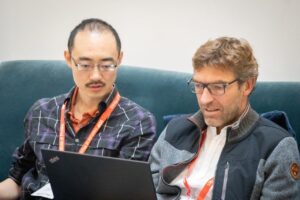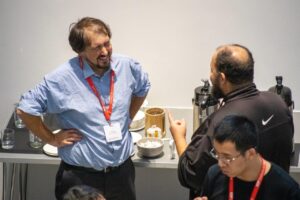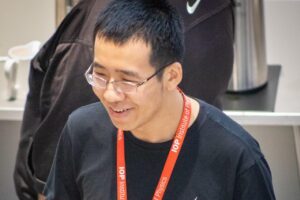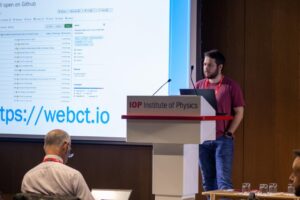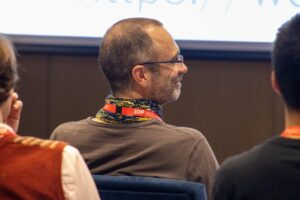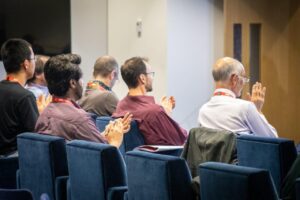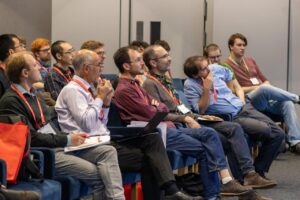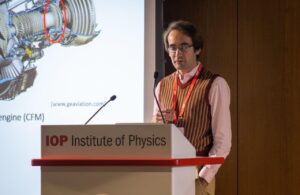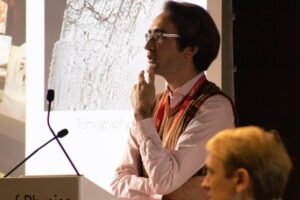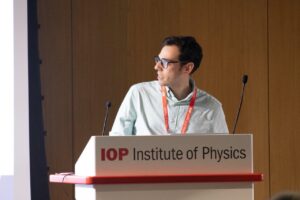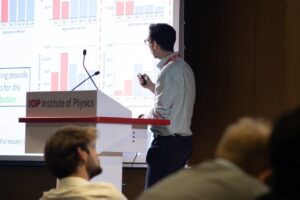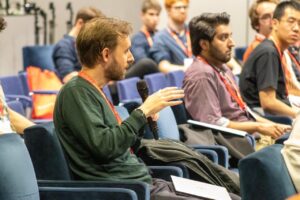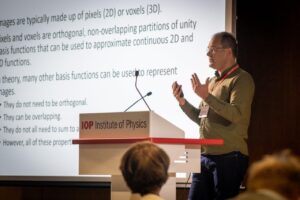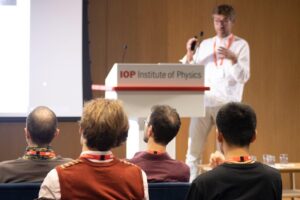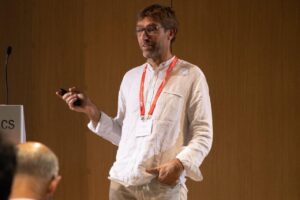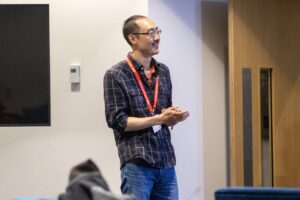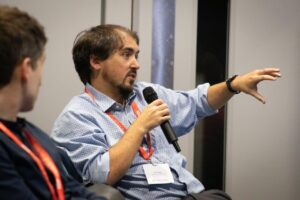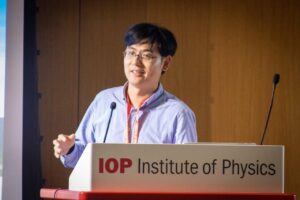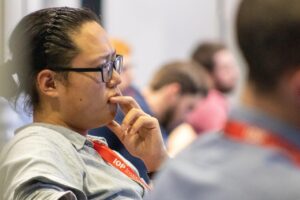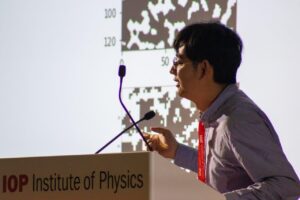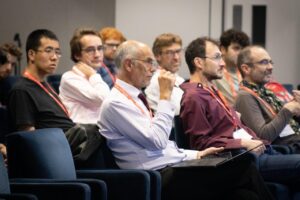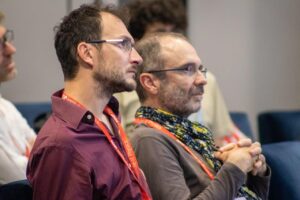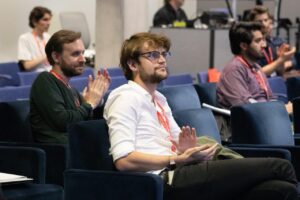Now in its 7th year, the event was attended by a mix of new and returning attendees over the five days. For the fourth time, the event was hosted by the IOP at its headquarters in London.
Attendee feedback continues to be positive. The following comments typify those left in feedback forms:
“Friendly and relaxed atmosphere. Good discussions. Great venue in a convenient location.”
“Really enjoyed the hands-on training at the start of the week and then the wide range of topics and views presented during the lectures.”
“Amazing community, good range of talks from different disciplines. Good amount of time for networking.”
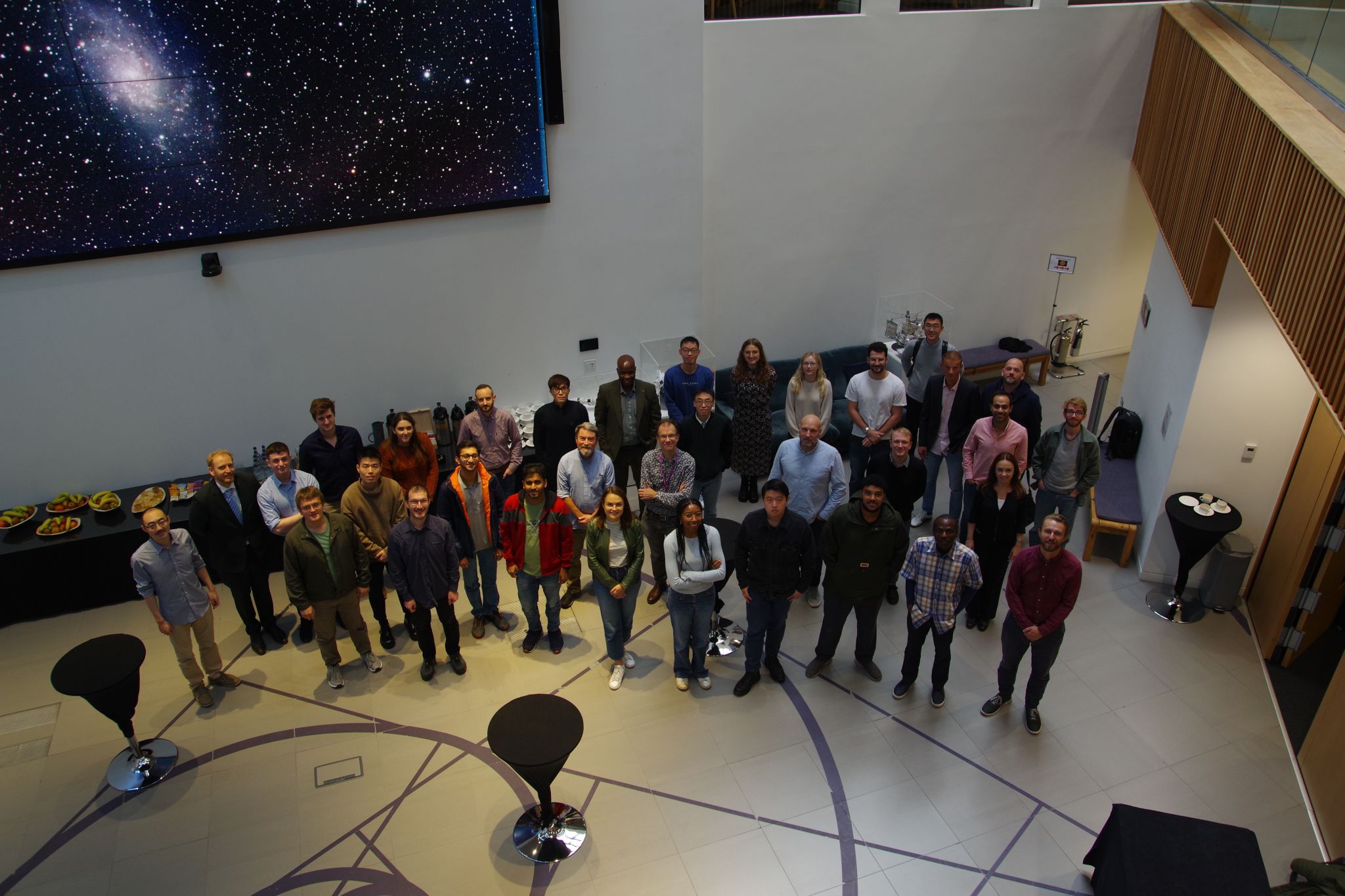
Keynote Speakers
Dr Samuel J Cooper, Dyson School of Design Engineering, Imperial College London
Machine learning for the characterisation and design of battery electrodes
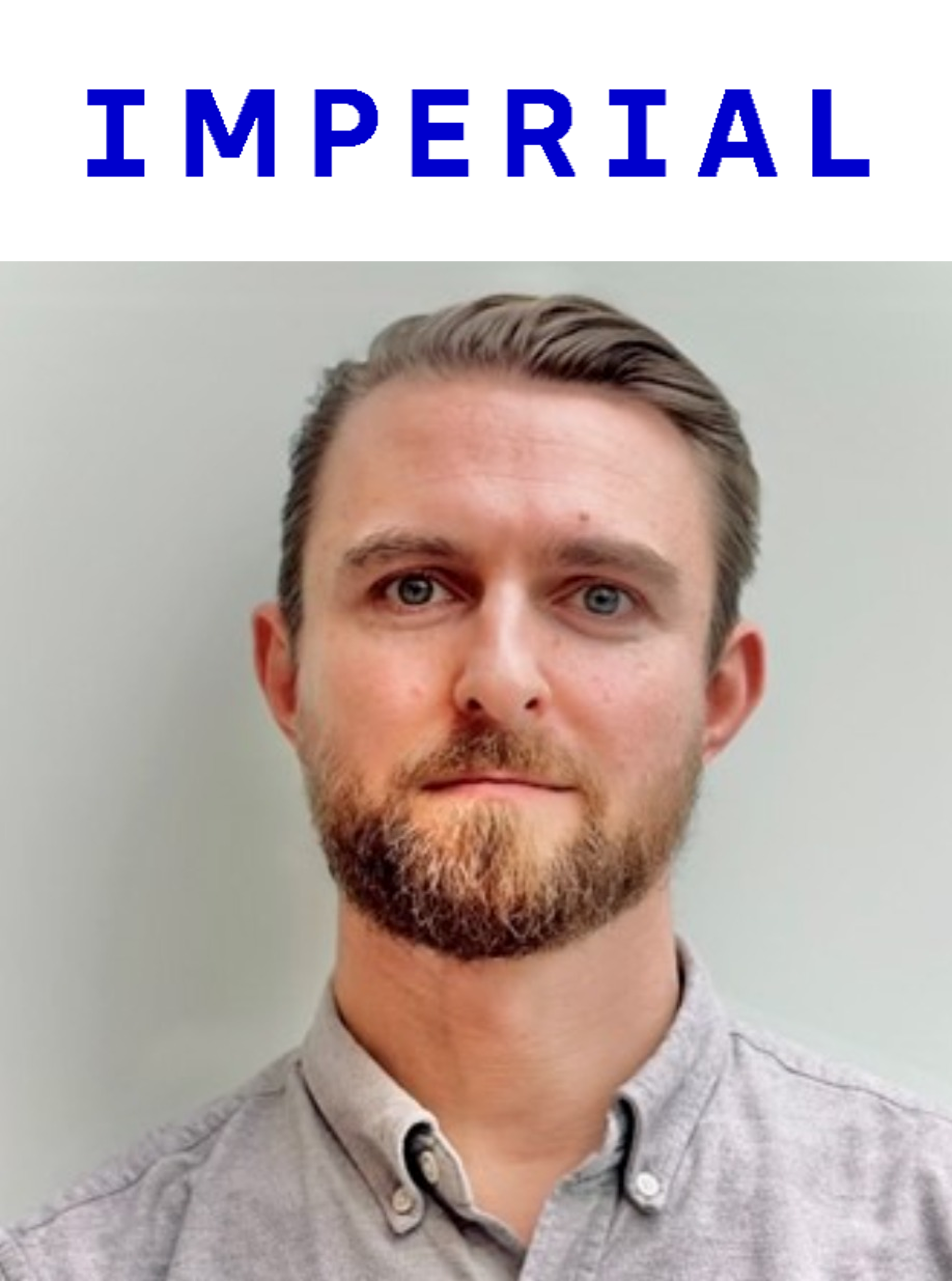
Dr Sam Cooper is a Reader in the Dyson School of Design Engineering at Imperial College London. He leads a group focused on the application of machine learning to the characterisation and design of advanced materials such as battery electrodes. His group has released many open-source software tools that can be found at https://tldr-group.github.io/. Most recently, Sam has spun out a company, Polaron, which is building a generative AI toolkit for materials design https://polaron.ai/.
Professor Christian Gasser, KTH Royal Institute of Technology, Stockholm
The biomechanics-based rupture risk assessment. Patient selection through FEM-based postprocessing of medical images
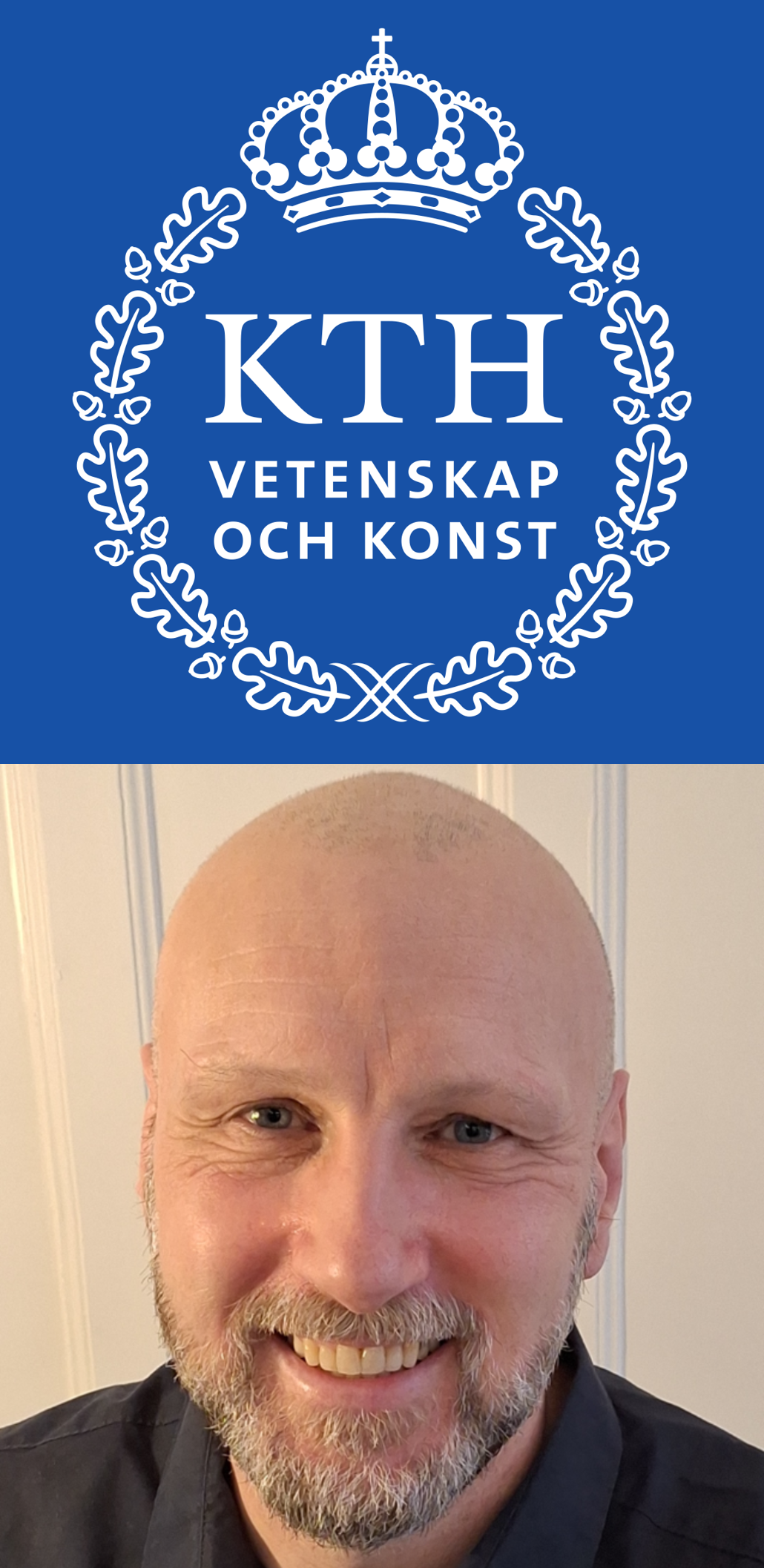
Christian Gasser is Professor of Biomechanics at KTH Royal Institute of Technology, Stockholm. He holds a Master of Mechanical Engineering (1997) and a PhD in Civil Engineering (2001), both from Graz University of Technology, Austria. The development and application of advanced numerical techniques to solve realistic (bio)engineering and clinical problems is Gasser’s main research objective. Constitutive models for anisotropic finite strain materials have been implemented in all major Finite Element simulation packages, such as ANSYS, ABAQUS, COMSOL, etc, and Gasser’s translational biomechanics research led to A4clinicsRE, commercial biomechanical-based simulation software for clinical decision making. In 2022, he was listed as KTH’s most influential researcher in Biomedical Engineering, and his work has so far led to more than 16k Google Scholar citations. He received a Humboldt Research Award from Germany, and Gasser is designated the 2024 Odqvist lecturer, a distinction awarded by the Swedish national mechanics committee. He is an Associate Editor of Int. J. for Num. Meth. in Biomed. Engrg, in the editorial board of Mechanics of Soft Materials and an EMMCC member, principal founder of ARTEC Diagnosis AB and VASCOPS GmbH, and serves as a legal expert for skiing accident reconstruction at Oberlandesgericht, Graz, Austria.
Additional Speakers
- Miraslau Barabash, University College London
- Brian Bay, Oregon State University
- Yang Chen, University of Bath
- Ronan Docherty, Imperial College London
- Victoria Hann, University of Nottingham
- John M. Hanna, Ecole Centrale De Nantes
- Sascha Heckmann, MeVis Medical Solutions AG
- Lewis Griffin, University of Bristol
- Nalin Gupta, STFC UKRI
- James Le Houx, STFC UKRI
- Chen Liu, Imperial College London
- Vincent Maes, University of Bristol
- Mikhail Matveev, University of Nottingham
- Iwan Mitchell, Bangor University
- Samir Mohamed, University of Edinburgh
- Sunday Nwokolo, Bangor University
- Rakhul Raj, UGC-DAE Consortium for Scientific Research
- Elena Syerko, Nantes Université, École Centrale de Nantes
- Liang Yang, Cranfield University
Awards
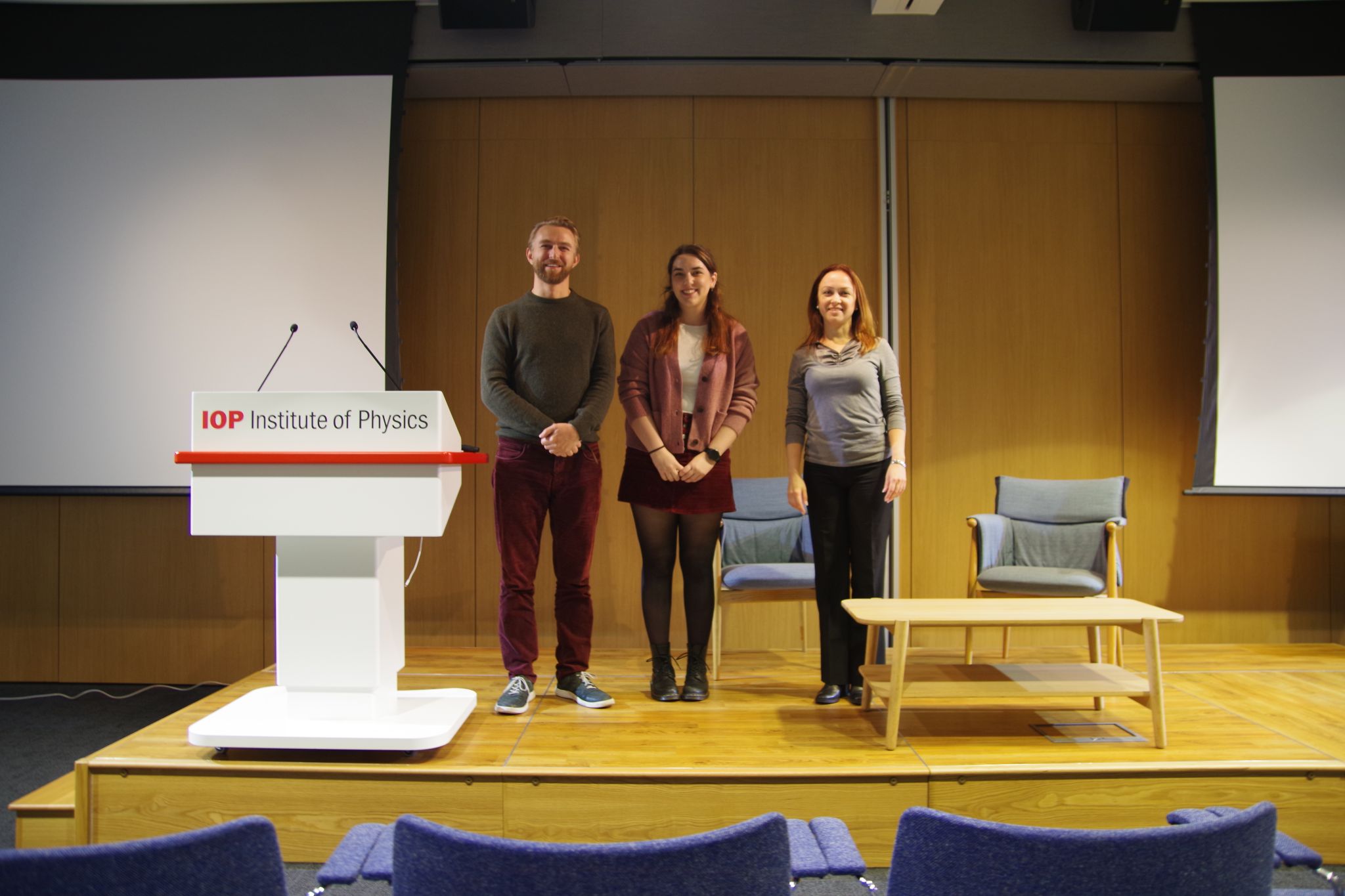
Congratulations to Victoria Hann of University of Nottingham. Victoria was awarded the best student presentation at IBSim-4i 2024 for her talk on “Exploring the Impact of Structural and Textural Realism in Synthetic Micro-CT Data for Machine Learning Model Training”. She described how she used Blender to implement L-systems and create annotated synthetic micro-computed tomography (micro-CT) volumes that can be used to train machine learning (ML) models for image analysis.
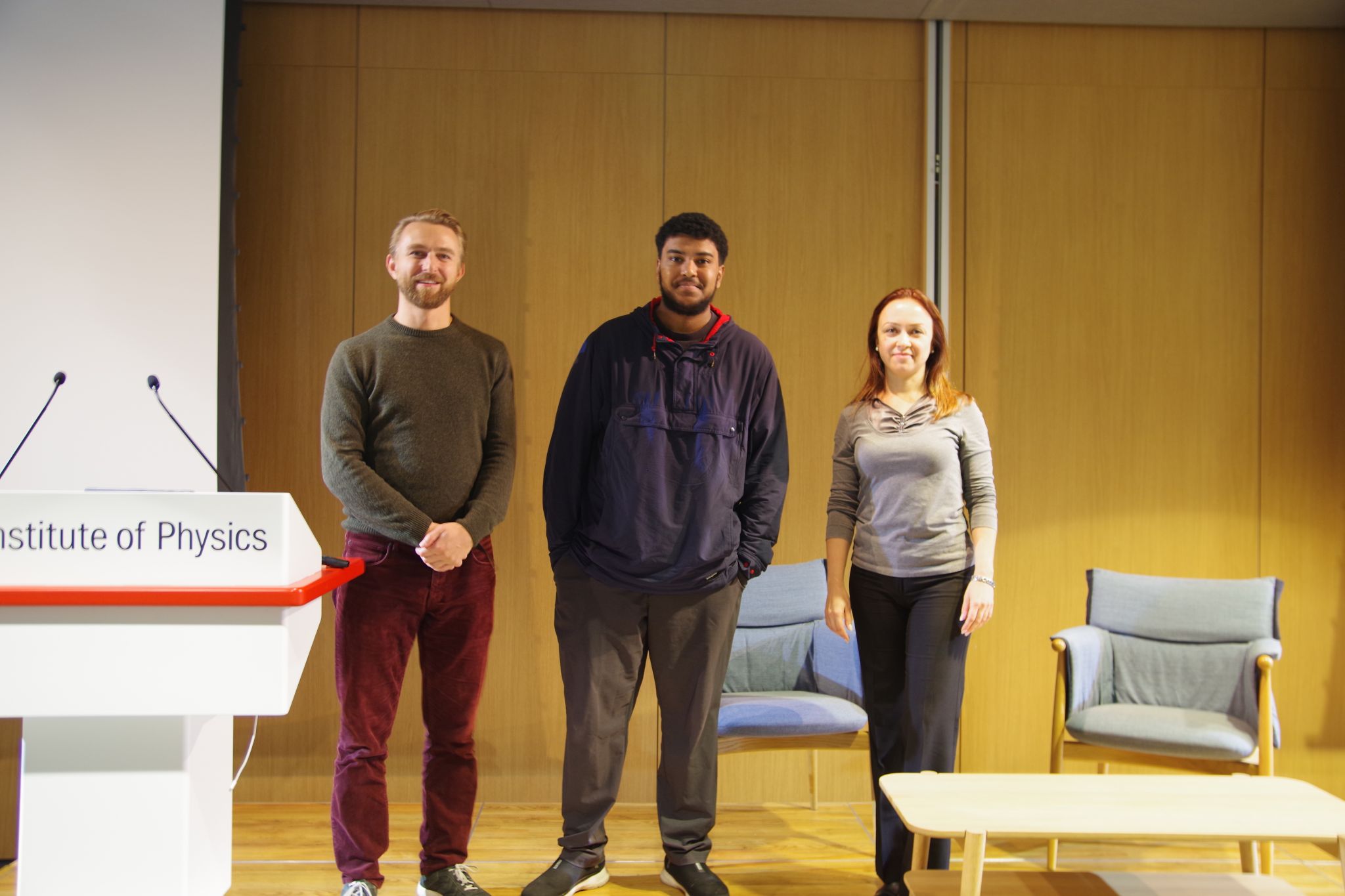
Congratulations to Samir Mohamed of The University of Edinburgh for the runner-up award at IBSim-4i. He presented a talk on “X-ray CT Reconstruction of 3D-printed Sample Using a Simulated Prior Generated from G-code File”. He showed results of his investigation on the use of prior images in the regularisation of iterative reconstruction algorithms for computed tomography.
Programme
Mon 21 Oct 2024
Day 1 – Training Course: Introduction to MeVisLab and core image-processing workflows.
- 09:30 – Registration and Refreshments
- 10:00 – Session 1: Introduction to MeVisLab – Types of modules, building your own networks, loading and viewing images, basic image processing
- 11:00 – Morning Break
- 11:15 – Session 2: Rapid prototyping and macro modules, Python scripting
- 12:45 – Lunch
- 13:45 – Session 3: Data objects – masks, markers, CSOs (contours), WEMs (3D meshes)
- 15:15 – Afternoon Break
- 15:30 – Session 4: Segmentations – basic (region growing, thresholds), advanced (using AI in MeVisLab)
- 17:00 – Drinks Reception
Tue 22 Oct 2024
Day 2 – Training Course: Introduction and hands-on session for DVC analysis.
- 08:30 – Arrival and Refreshments
- 09:00 – Session 1: Introduction to iDVC – algorithms behind the code
- 10:15 – Morning Break
- 10:30 – Session 2: Getting started with iDVC
- 12:00 – Lunch
- 13:00 – Session 3: Hands-on: prepare for the DVC analysis
- 14:30 – Afternoon Break
- 14:45 – Session 4: Hands-on: run DVC and show the results
Wed 23 Oct 2024
Day 3 – User and Developer Forum: talks and presentations on image-based methods.
- 09:30 – Registration and Refreshments
- 10:00 – Welcome: Franck Vidal
- 10:15 – Keynote 1
Christian Gasser, KTH Royal Institute of Technology
“Biomechanics-based rupture risk assessment using FEM postprocessing”
- 11:00 – Session 1
Sascha Heckmann, MeVis Medical Solutions AG
“Imaging in MeVisLab”Samir Mohamed, University of Edinburgh
“CT reconstruction using G-code prior”Sunday Nwokolo, Bangor University
“Recovery of partially damaged CT dataset” - 12:30 – Lunch
- 13:30 – Session 2
Iwan Mitchell, Bangor University
“CAD/CT comparison with simulations”
Liang Yang, Cranfield University
“Unfitted Finite Element methods”Brian Bay, Oregon State University
“Microstructure DVC and analytical models” - 15:10 – Afternoon Break
- 15:40 – Session 3
Elena Syerko, Nantes Université, École Centrale de Nantes
“Permeability computation using ‘PoroS'”
Vincent Maes, University of Bristol
“BASIC benchmark for composites”Yang Chen, University of Bath
“FFT-based dual-scale flow homogenisation”James Le Houx, STFC UKRI
“DIAMOND synchrotron and ISIS neutron/muon source” - 17:30 – Networking Reception and Buffet Dinner
Thu 24 Oct 2024
Day 4 – User and Developer Forum continued: advanced topics and case studies.
- 09:00 – Arrival and Refreshments
- 09:30 – Keynote 2
Samuel J Cooper, Imperial College London
“Machine learning for battery electrode characterisation” - 10:15 – Session 4a
Miraslau Barabash, University College London
“3D modelling of Li-S batteries” - 10:40 – Morning Break
- 11:10 – Session 4b
John M. Hanna, Ecole Centrale De Nantes
“Physics-informed CNNs for permeability”
Victoria Hann, University of Nottingham
“Structural/textural realism in synthetic micro-CT for ML” - 12:25 – Lunch
- 13:30 – Session 5: Presentations
Mikhail Matveev, University of Nottingham
“CT image object cataloguing”
Chen Liu, Imperial College London
“3D EBSD/SEM tomography of creep damage”
Lewis Griffin, University of Bristol
“Deep learning for ply segmentation” - 14:45 – Afternoon Break
- 15:15 – Session 6: Presentations
Nalin Gupta, STFC UKRI
“Procedural digital phantoms in gVirtualXray”
Rakhul Raj, UGC-DAE Consortium for Scientific Research
“MODVORTEx: magnetic domain dynamics”
Ronan Docherty, Imperial College London
“Upsampling DINOv2 for weakly supervised materials segmentation” - 16:30 – Closing Remarks
Fri 25 Oct 2024
Day 5 – Collaborative workshop: research planning and closing activities.
- 09:00 – Registration and Refreshments
- 09:30 – Session 1
- 10:45 – Morning Break
- 11:15 – Session 2
- 12:30 – Lunch
- 13:30 – Conference Close
Recordings [Day 3]

